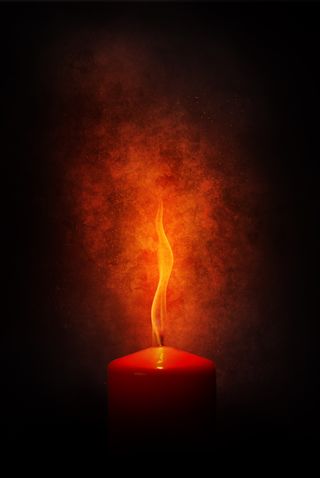
Spirituality
Why Do We Fear Vodou?
Unpacking the consequences of cultural appropriation on Vodou’s adherents.
Posted November 2, 2018

Tiffany Yip is teaching a graduate seminar on Multicultural Psychology this semester and has invited some of her students to co-author blogs. This blog was written with Evan Auguste, a third-year doctoral student in Fordham University's Clinical Psychology program.
Halloween has been a troubling time for many in the U.S. The prospect of walking into a party only to see one’s cultural heritage packaged into a costume is all too infuriating, if only because of how commonplace it is. Indeed, Megyn Kelly recently provoked anger on her NBC show for proposing that blackface should be an encouraged and fun prospect on October 31st. She was swiftly fired, but the fact remains that Halloween can reveal some of the ways in which many people are ignorant of the multitude of histories that created this nation.
One heritage that is often denigrated on the holiday is that of the Haitian people. A Google Trends search reveals that interest in “voodoo” peaks annually on Halloween, most likely due to the fact that the religion has become central to many Western conceptions of horror. Superficially, it makes sense. The ideas of zombie invasions and spiritual possessions all pull from the Haitian, and New Orleans, faith of Vodou. Yet, further analysis reveals the depth of historical and cultural damage this misappropriation has had.
Vodou itself was born from the spiritual mélange of the enslaved peoples of Western and Central Africa. An Ayizo word referring to that which is holy or sacred, the belief system rests on the central premise that spirits regularly interact with and guide the living. These spirits exist in several distinct classes, the lowest of which are the lwa. There are lwa believed to represent the shared old gods of Africa, the shared malevolent spirits in Africa, the spirits of those who have passed on, and the spirits of distinct regions such as the Nago or the Kongo. In order to navigate this complex web of ancestral and eternal spirits, Hougans and Mambos typically train for a period of 5 years.
This conception of the spiritual world as malleable enough to accept the presence of spirits from a diversity of regions was core to the unification of the Haitian people. According to Wade Nobles, an essential key to the success of the Haitian Revolution was that the enslaved people were able to connect their spiritual worlds and find common identity. Moreover, Frantz Fanon posited that religion enables colonized peoples to displace the oppressive myths and cruel realities they are subject to through collective identification with a spiritual plane. On that plane, they are able to exalt their own history and find agency in these collective beliefs.
It is no coincidence that Vodou was inextricably linked to Haiti’s liberation efforts, from Francois Mackandal, an Hougan credited with one of the earliest and more successful rebellions in St. Domingue, to Dutty Boukman and Cecile Fatiman, the Hougan and the Mambo credited with starting the Haitian Revolution at a ceremony in Bois Cayman. This system of faith served as a source of cultural and psychological resilience that united an ethnically diverse group of African peoples against enslavement.
Vodou is not unique in that way. Research has shown that positive faith in religion in general is associated with increased self-esteem and hope. Religion and spirituality have also been shown to protect against depression, suicide, and substance abuse. Researchers suggest that these outcomes are, in part, due to the framework of religion providing an effective coping mechanism for distress and trauma. In this way, an intact and positive system of meaning protects against the range of negative outcomes that one might experience. However, the protective nature of a spiritual framework is nuanced. A negative belief in faith, or understanding stressful life events as due to divine retribution, is linked to poorer mental health outcomes.
How does this manifest in the real world? That same Google Trend search reveals interest in “voodoo” also peaked in January of 2010, in the aftermath of the earthquake that devastated Port-au-Prince. Only a few days after the disaster, Pat Robertson, the chairman of the Christian Broadcasting Network, went on national television to declare that the earthquake was divine punishment for the ceremony at Bois Cayman. The spiritual unity that resulted in the first Black republic was summed as a “pact with the devil” for an American audience. While Robertson did not originate the American fear of Vodou, he did reinforce existing myths. This American misappropriation had real consequences for the Haitian people. Research found that Haitians who believed the earthquake to be divine punishment experienced worse PTSD symptoms than those who did not. In addition, while it was found that faith in Vodou protected against PTSD symptoms, it was also found that adherents experienced significantly worse depressive symptoms—likely linked to the discrimination they experienced by those that blamed them for the disaster.
The degree to which this misappropriation has harmed the spirit and general mental health of some Haitian people cannot be fully quantified. However, it is important to question why it remains so easy to characterize an African spiritual tradition linked to one of history’s greatest liberation movements as fundamentally evil. It has been said, “there is no good or evil in Vodou,” and with nationalist terrorism dominating the news cycle, maybe the U.S. does not need to go far to supplement its own nightmares. As the U.S. continues to struggle accepting its multicultural experiment, perhaps there are lessons in liberty and unity to be learned from Vodou.
References
Blanc, J., Rahill, G. J., Laconi, S., & Mouchenik, Y. (2016). Religious Beliefs,
PTSD, Depression and Resilience in Survivors of the 2010 Haiti
Earthquake. Journal of Affective Disorders, 190, 697-703.
Longo, D. A., & Peterson, S. M. (2002). The role of spirituality in psychosocial
rehabilitation. Psychiatric Rehabilitation Journal, 25(4), 333-340.
Nobles, W. W. (2015). The Island of Memes: Haiti's Unfinished Revolution. Black
Classic Press.

